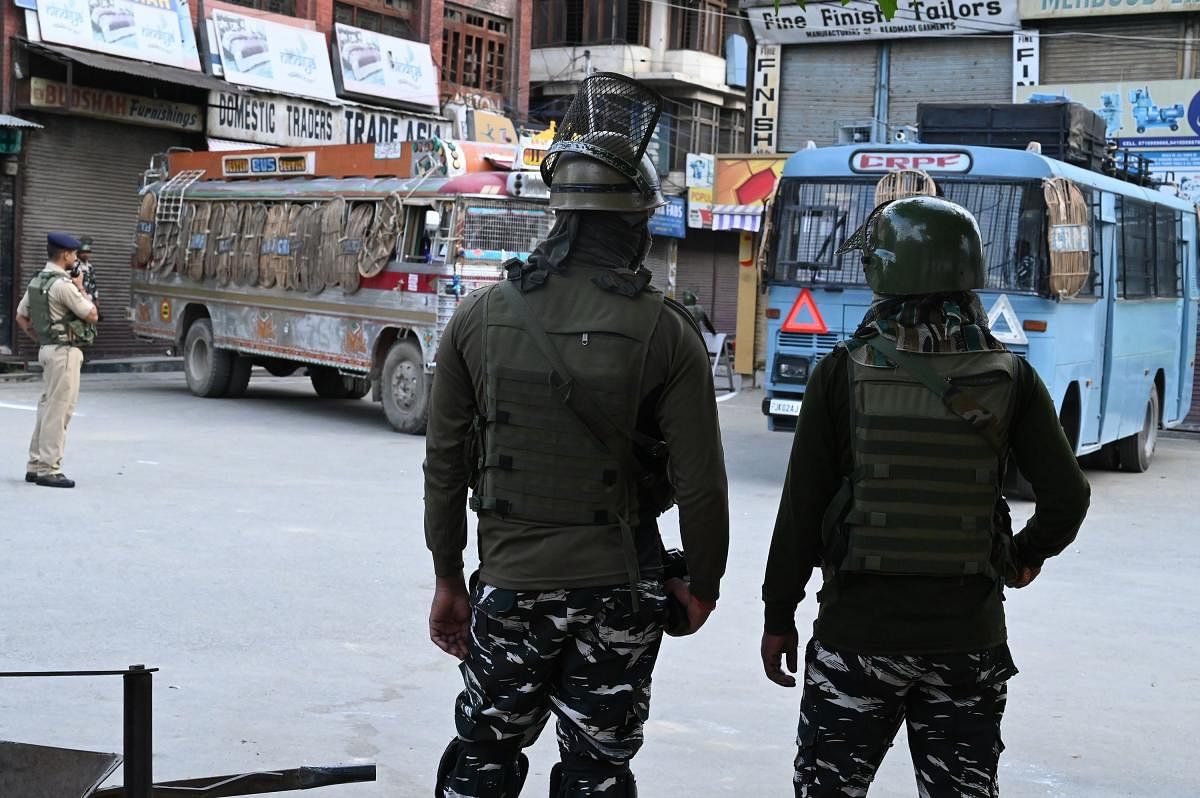
It is disappointing that the Supreme Court has refused to make any intervention in Kashmir on upholding the fundamental rights of the citizens there. The Kashmir Valley is under lockdown now, despite claims of periodic or nominal relaxations. Maintenance of law and order, and security is the executive’s right but ensuring that the citizens are not deprived of their basic rights is the judiciary’s responsibility. The Supreme Court accepted the government’s arguments for the continuation of the lockdown and accepted its version of the situation. It noted that no other version was available and said that it would consider the case for a review after two weeks. This is unfortunate, because the petitioner before the court was only seeking a relaxation of the curbs on people’s access to essential institutions like hospitals, and not their lifting altogether.
The government claims that the Valley is quiet and calm and the restrictions are only preventive. News is choked and most media outlets in the Valley have been shut down. Kashmir is a virtual news blackhole now. People cannot gather and travel and it is difficult to go to hospitals, police stations or any other similar place. Internet and telephone facilities have been completely shut down. Even landlines have been cut off. Such total blackouts happen only in authoritarian countries. Most leaders of the state are under arrest. This situation has continued for many days. The Eid lacked the traditional fervour and involvement of the people. The government has said that all that it has done is for the good of the people. But it is unwilling to test it on the ground and let the rest of the country know whether the people of Kashmir believe its claims.
Security is certainly important. But governance in a democratic system has to take into consideration many factors like the constitutional, civic and human rights of citizens. Policy-making is complex and is especially difficult in a complicated situation like that in Kashmir. Whenever normal rights are to be curbed, there has to be legislative or judicial oversight of the executive’s actions. In Kashmir’s case, there is no legislative scrutiny of the government’s actions and the court has failed to take a view other than making an observation that the government has to be given “reasonable time’’ and wondering who would be blamed if something went wrong. The reasonable time has not been defined, and the court has, in effect, supported the government’s contention and accepted its justifications and explanations. The Supreme Court has always upheld the fundamental rights of citizens, but it is a moot question whether it has kept its record right on Kashmir.
Deccan Herald is on WhatsApp Channels| Join now for Breaking News & Editor's Picks